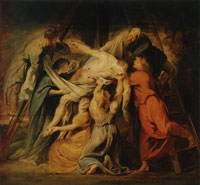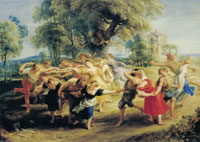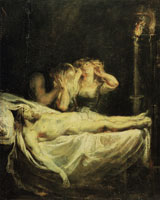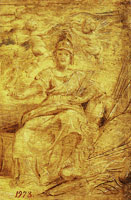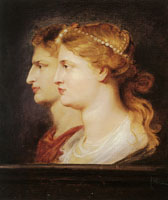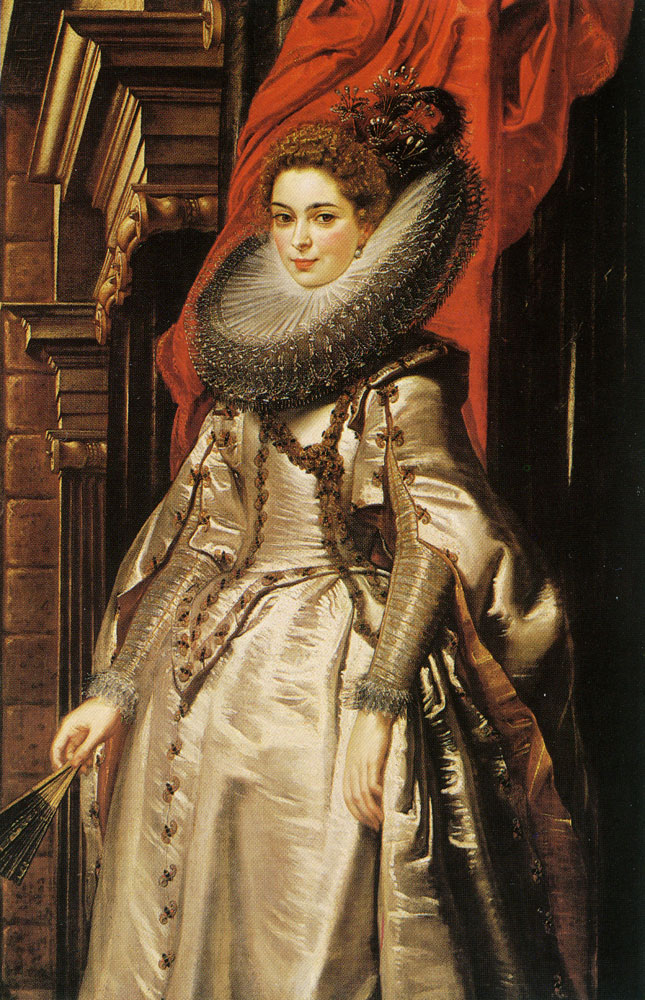
Peter Paul Rubens
Marchesa Brigida Spinola Doria
c. 1606152.2 x 98.7 cm
Oil on canvas
National Gallery of Art, Washington, D.C.
Samuel H. Kress Collection
Literature
Collection catalogues
John Walker, National Gallery of Art, Washington, New York, 1995, nr. 327
Provenance
The sitter's first husband, Marchese Giacomi Massimiliano Doria (1571-1613, married 9 July 1605), Genoa
by bequest to his brother, Giovanni Carlo Doria (1576-1625), Genoa
passed, probably in 1625, to the sitter's second husband, Giovanni Vincenzo Imperiale (1582-1648, married 4 August 1621), Genoa
probably the sitter, until her death
probably by bequest 1661 to the sitter's stepson and son-in-law, Francesco Maria Imperiale, Mantua
Imperiale Family, Genoa and Mantua
gift from the head of the Imperiale Family to Rati Opizzone's father-in-law
by inheritance to Rati Opizzone, Counselor of the State in Turin, by 1840
Simon Horsín-Déon (1812-1882), Paris, by 1848
J. Pariss, London, by 1854
sale, Christie & Manson, London, 4 February 1854, nr. 76, bought in
purchased after the sale by Charles J. Nieuwenhuys, Brussels and London
his sale, Christie, Manson & Woods, London, 17 July 1886, nr. 92 to Wertheimer
with Charles J. Wertheimer, London
probably Lawrence Currie (died 1934), Minley Manor, Hampshire
by inheritance to his son, Betram George Francis Currie, Minley Manor
sale, Christie, Manson & Woods, London, 16 April 1937, nr. 116 purchased by Arthur Goldschmidt, London for Duveen Brothers, Inc., London and New York
sold 1957 to the Samuel H. Kress Foundation, New York
gift 1961 to NGA
